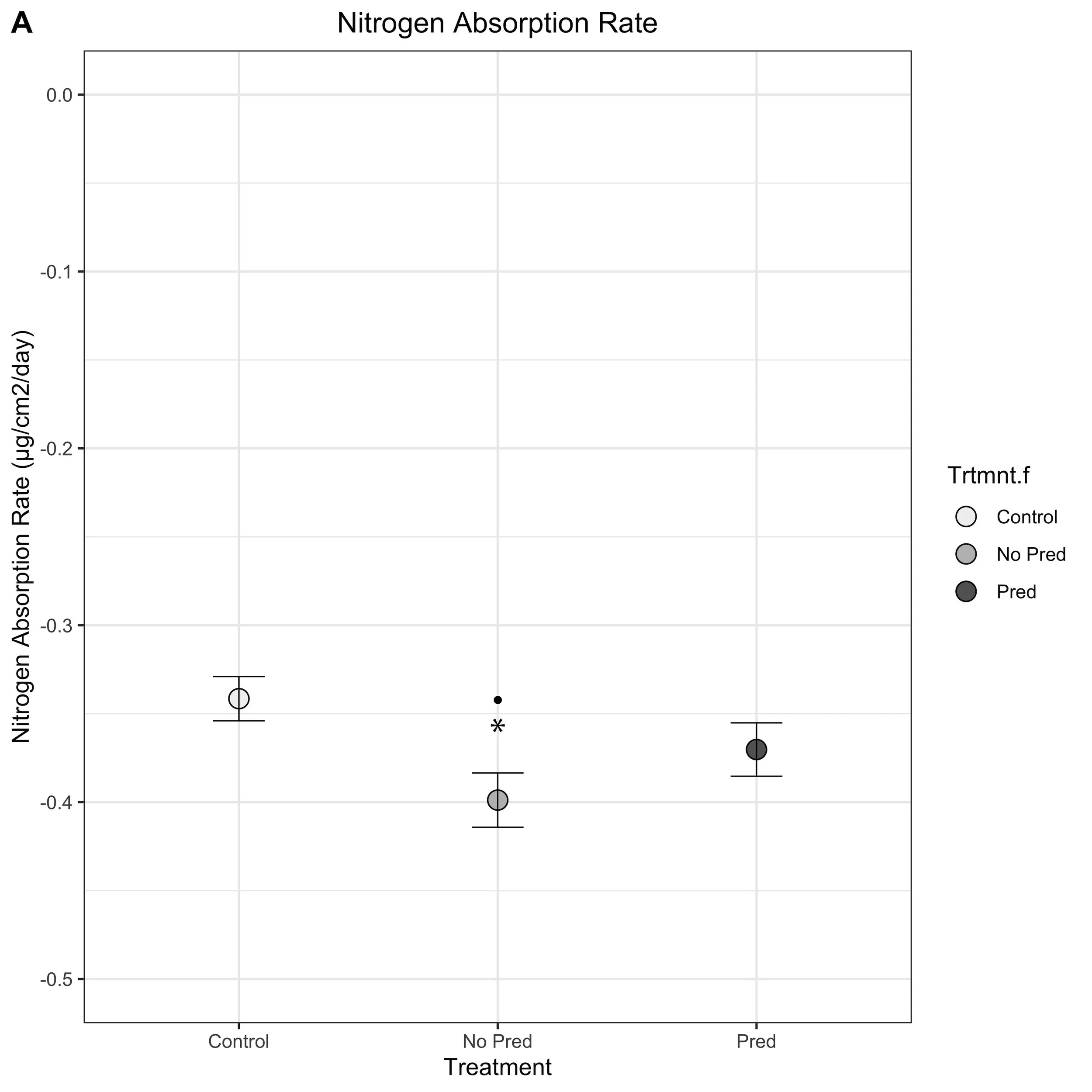
Wetland Ecosystem Functions
Research in a wide variety of ecosystems has shown that community structure and trophic interactions are important determinants of ecosystem function. Yet, due to an historical ecological paradigm emphasizing bottom-up control in wetlands, few studies have evaluated the importance of top-down effects in maintaining ecosystem processes. Our lab investigates this assumption by conducting field experiments relating food web structure to ecosystem processes in coastal wetland systems.
Related ICL Publications:
Moore AC, Fauset E, and Asher F. 2020. Consumer impacts on ecosystem functions in coastal wetlands: The data gap. Ecosphere 11(2): e03042.
Moore AC. 2019. What is the role of ecosystem engineers in New England salt marshes? A mesocosm study of the fiddler crab and the purple marsh crab. Wetlands. https://doi.org/10.1007/s13157-019-01123-4
Moore AC. 2018. Context-dependent consumer control in New England tidal wetlands. PLoS ONE 13(5): e0197170
Predators and Restoration
Trophic cascades have been observed in numerous ecosystems and are known to have positive impacts on restoration outcomes. Yet, the role that trophic cascades and predators play in facilitating the recovery of coastal wetland ecosystem properties relative to bottom-up factors is unclear. Here, we examine the role that predators play across various contexts to help inform conservation and restoration practice.
Related ICL publications:
Moore AC and Schmitz OJ. 2021. Do predators have a role to play in wetland restoration? An experimental study in New England salt marshes. Ecology and Evolution. DOI 10.1002/ece3.7880
Mangroves and Traditional Ecological Knowledge
Over the last 15 years, studies have increasingly shown the importance of top-down factors in regulating coastal wetland ecosystems. However, these studies overwhelmingly occur in salt marshes with very few exploring the role of consumer species and trophic dynamics in other coastal systems, such as mangrove forests. Additionally, studies with direct conservation applications rarely consider the role of traditional ecological knowledge and local environmental stewardship practices in maintaining these systems. Thus, our lab addresses this ecological knowledge gap for mangrove forests and incorporates the cultural values and environmental stewardship practices of the local communities affected by these efforts.
Related ICL publications:
Moore AC, Hierro L, Mir N, Stewart T. 2022. Mangrove Cultural Services and Values: Current Status and Knowledge Gaps. People and Nature. http://doi.org/10.1002/pan3.10375
Global Change Impacts on Coastal Ecological Communities
Global change stressors are altering the structure of ecological communities with significant implications for the functions and services that ecosystems provide. Coastal zones are particularly susceptible to such stressors, yet our collective understanding of the long-term effects of global change on these systems is limited. To better understand these effects and develop comprehensive mitigation strategies, the ICL is in the early stages of creating a research program focusing on global change impacts, including nutrient enrichment, climate change, and pollution, on coastal ecological communities across various temporal and spatial scales.




